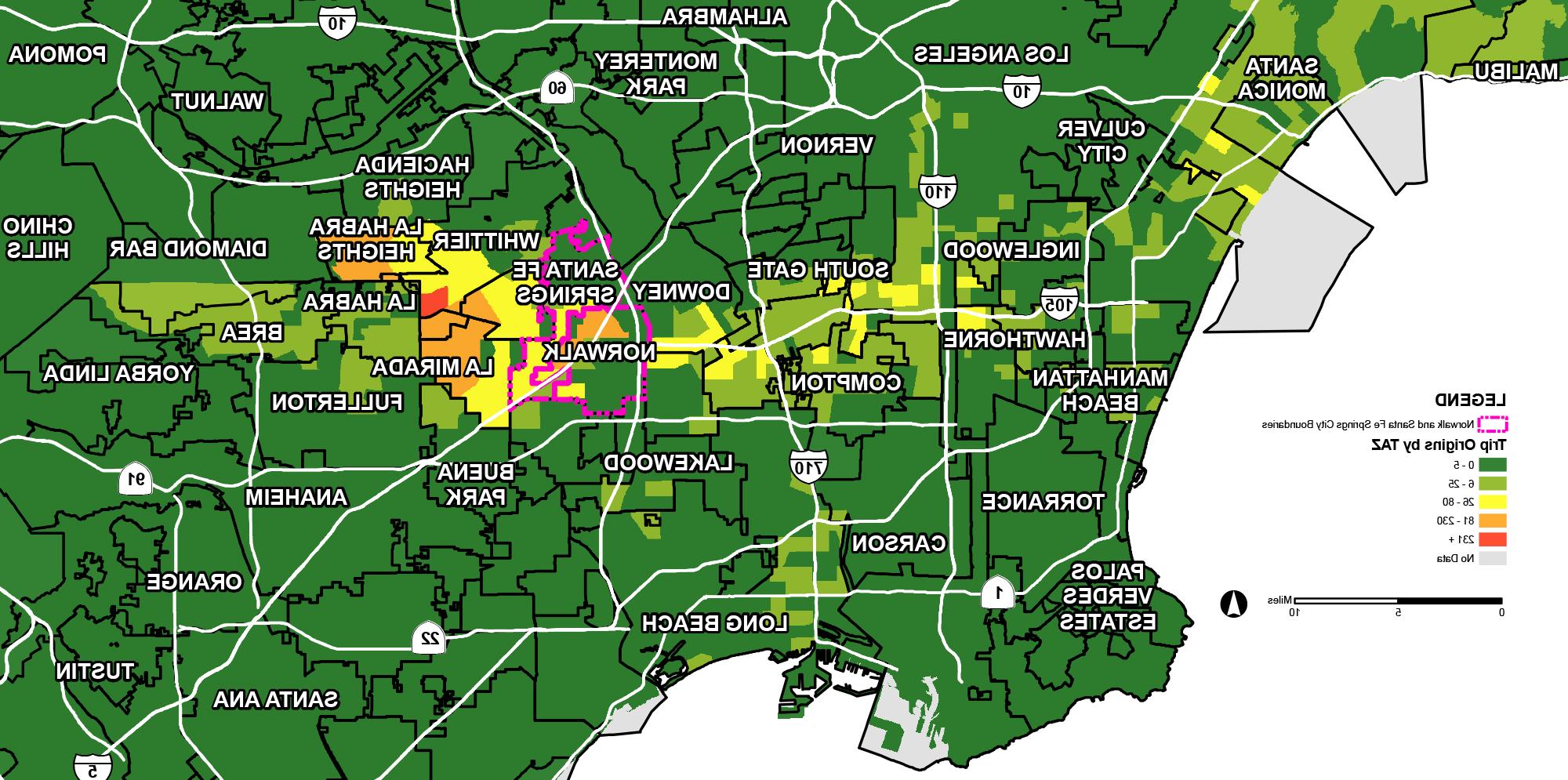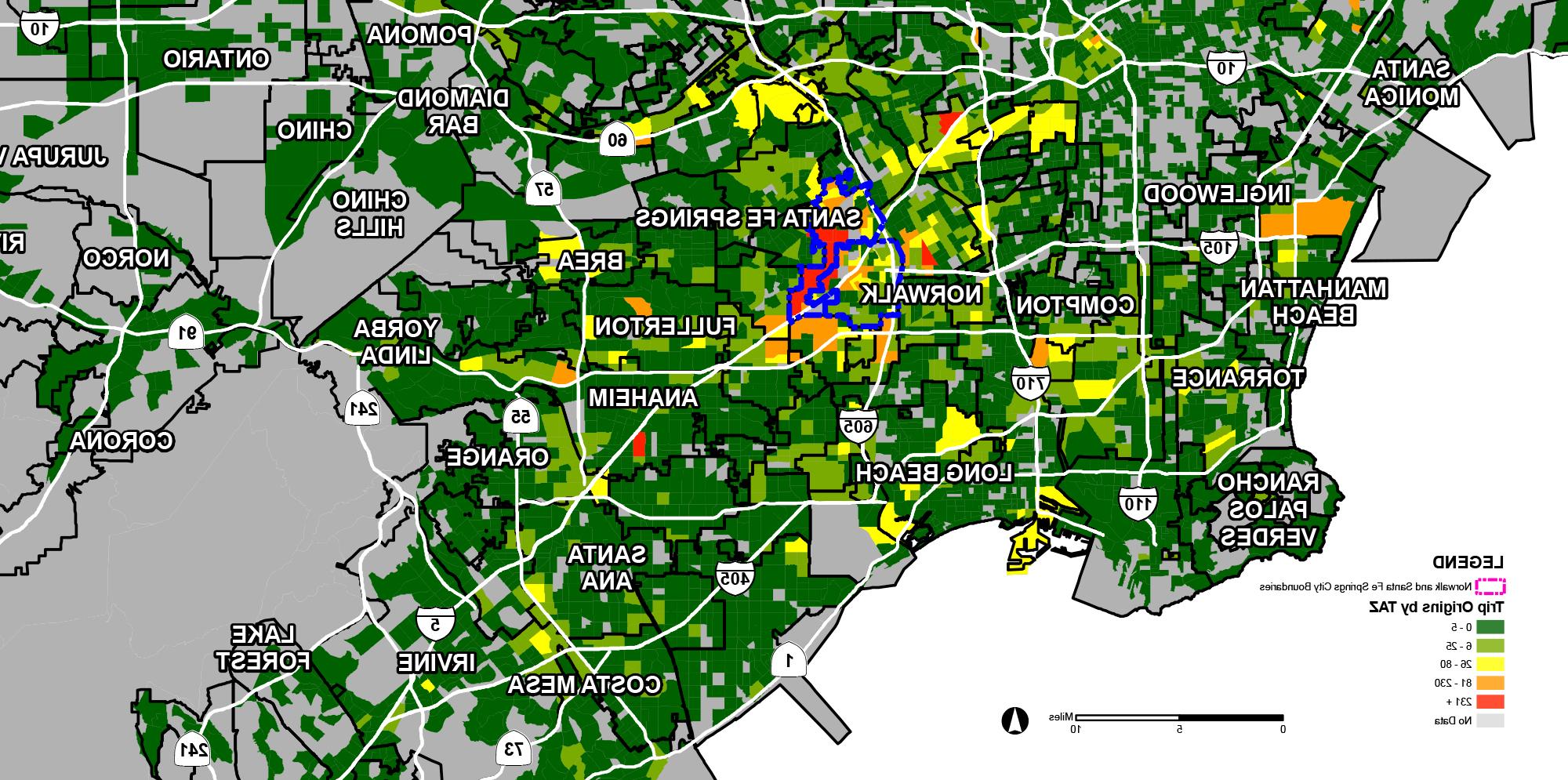Metro Green Line Extension
To identify and evaluate feasible alternatives for extending the Metro Green Line LRT from its current terminus at the Norwalk/I-605 Station to the Norwalk/Santa Fe Springs Metrolink Commuter Rail station, IBI Group completed an analysis of regional and local travel patterns to outline how completing a critical link in the regional rail system would benefit the region.
Client
The Southern California Association of Governments (SCAG)Location
Norwalk, Santa Fe Springs, CA

Expanding opportunities for Los Angeles and Orange Counties
The Metro Green Line is a 20-mile, light rail line that runs between Redondo Beach and the Los Angeles International Airport (LAX) and Norwalk within Los Angeles County. With a missing 2.8-mile critical link in the existing regional rail system, which would allow seamless travel by transit from Southeast Los Angeles County and Orange County to LAX, the Southern California Association of Governments (SCAG), in conjunction with the Los Angeles County Metropolitan Transportation Authority (Metro) and the Cities of Norwalk and Santa Fe Springs, have initiated a planning study to identify and evaluate feasible alternatives for extending the Metro Green Line from the existing eastern terminus in Norwalk to the Norwalk/Santa Fe Springs Metrolink Station.
IBI Group analyzed regional and local travel patterns to provide information on how completing the missing link would benefit future economic opportunities of Norwalk and Santa Fe Springs, while providing residents with an additional mode choice alternative. The IBI team extracted origin-destination data from the SCAG traffic model to evaluate baseline-year and future-year conditions. The data was then mapped in ArcGIS by traffic analysis zones (TAZ) to produce heat maps that visualize geographic patterns of the area.
Results from the analysis revealed a significant number of trips originating and ending at destinations that could also be served by transit alternatives, such as the Metrolink Orange County Line or the Metro Green Line. These results signify the need for and the importance of improving transit connectivity within the regional rail system.
Having established the need, IBI Group is currently developing LRT alternatives that not only meet the need for greater regional connectivity, but also the Cities’ land use and economic development goals, through the potential provision of additional stations along the alignment. The study features an integrated mix of transit corridor planning, conceptual rail system design, urban design, Transit Oriented Communities planning, First-Last Mile planning, and real estate economic analysis, all within a strongly interactive public outreach program, including a charrette to develop alternative routes and station locations. The results of the study will be a narrowed set of feasible extension alternatives, ready for entry into the formal environmental clearance process.
Mobility+
A new mobility ecosystem is changing the way we interact with and move throughout our cities.



